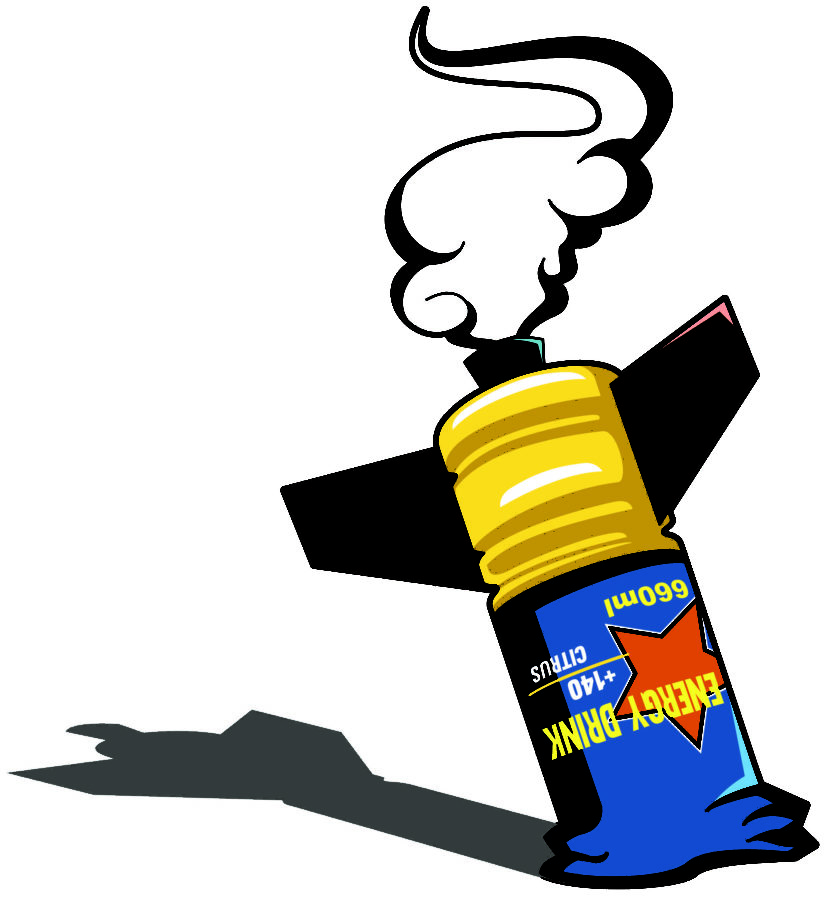Cell phones in one hand and energy drinks in the other, college students across America are gearing up for the scholastic demands of the day.
The wide array of energy drinks to choose from has become a temptation students can’t resist. Whether helping them through exams, finals, pulling all-nighters or achieving optimum athletic performance, energy drinks’ massive popularity points in one direction: up and they are here to stay.
SRJC student James McCurdy, favors the Rockstar energy drink, mainly for its taste. On average, he may consume about three a day. “I used to love to go to 7-11 for their taquitos and an ice-cold Rockstar. I would get my fix,” McCurdy said. When asked if he used energy drinks for a boost before exams, he said, “Definitely, they give you clarity.”
High levels of caffeine rocket me into the ozone layer. I thoroughly enjoy my coffee first thing in the morning. However, caffeine is a stimulant and I have to be conscious of my own intake.
The Daily Targum, a student newspaper at Rutgers University in New Jersey, recently reported increases in health risks from consumption of energy drinks.
Also, the new trend of mixing alcohol with energy drinks is concerning to say the least. The old saying, “a wide-awake drunk” applies here. For example, a person may feel awake enough to drive while intoxicated, though well over the legal limit.
In my work, I deal directly with addicts of all kinds. Whatever the form of addiction, exercise caution to avoid the pitfalls of chemical dependency. Energy drinks, promising a quick boost, have become the new popular and acceptable form of a speed “high.” Caffeine is a better option than meth-amphetamines; which, while popular and, don’t forget, illegal, is dangerous and extremely addictive. Stimulants at these high levels are not only harmful, but sometimes fatal.
Heavy consumption of energy drinks can overload the nervous system. One of the main reasons is taurine, a common ingredient found in caffeine and sugar-laden concoctions. Synthetic taurine has an unnatural stimulating effect on the central nervous system.
The John Hopkins University School of Medicine reported the level of caffeine in these drinks can contain a staggering 50 mg to 505 mg of caffeine per can or bottle, compared to coffee’s avaerage of 40 mg. That level can raise blood pressure, disturb sleep patterns and cause extreme agitation and heart palpitations.
New federal data from a report by the Substance Abuse and Mental Health Services Administration linked the growing consumption of caffeinated beverages to an increase in emergency room visits.
Take a break from energy drinks; they are a recipe for disaster. Substitutes such as Gatorade are much healthier. Flying high on stimulants of any kind, you will pay the price, physically and mentally.
Moderation, folks. Marketers promoting the use of energy drinks don’t necessarily care about your health. Ultimately the one in charge is you!




